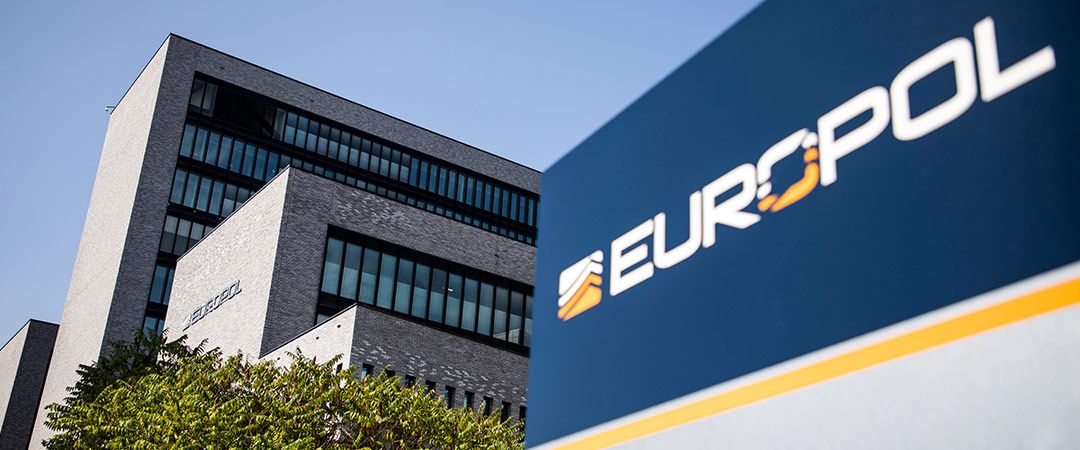The Council presidency and the European Parliament reached a provisional agreement on a draft regulation amending the Europol regulation. The provisional agreement is subject to approval by the Council and the European Parliament before going through the formal adoption procedure.
On the basis of a Commission proposal, the European Parliament and the Council agreed to strengthen Europol’s capacity to better support member states in their fight against new threats and modus operandi.
Main improvements
Research and innovation
Given the challenges that the use of new technologies by criminals poses to the EU’s security, law enforcement authorities need to strengthen their technological capabilities. To achieve this, the draft regulation tasks Europol with supporting member states in the use of emerging technologies. Europol should also work to explore new approaches and develop common technological solutions, including solutions based on artificial intelligence, which should always be subject to robust security and fundamental rights safeguards.
Processing of large data sets
Data collected in criminal investigations have been increasing in size and complexity. Member states cannot always detect cross-border links through their own analysis of the data. Under the draft regulation, Europol will be able to process large and complex data sets to support member states in their fight against serious crime and terrorism. The regulation also includes strict requirements to ensure that any data processing by Europol always respects fundamental rights, including the right to privacy, aligning this regulation with the EU regulation on data protection.
During the negotiations, the Parliament’s team ensured that, before engaging in the use of data for research projects, Europol will have to consult a Fundamental Rights Officer and a Data Protection Officer. MEPs also pushed to limit the data provided by private parties to the least sensitive types.
Cooperation with private parties
As a result of the increased use of online services by criminals, private parties hold an increasing amount of personal data that may be relevant for criminal investigations. Under the draft regulation, Europol will be able to receive personal data directly from private parties, to ensure a point of contact at EU level to lawfully share multijurisdictional data sets. Europol will then be able to analyse these data sets in order to identify the relevant member states and forward the information to the national authorities.
Cooperation with third countries
The draft regulation extends the scope for Europol to cooperate with third countries. It introduces the possibility to exchange personal data with countries where appropriate safeguards have been provided for in a legally binding instrument or exist based on a self-assessment carried out in the framework of Europol.
Cooperation with the European Public Prosecutor’s Office
Europol should work closely with the EPPO and support the investigations of the EPPO, upon its request. Europol should also report to the EPPO without delay any criminal conduct which falls under the EPPO’s competence. To enhance the operational cooperation between the two bodies, the draft regulation also sets down the rules for access to Europol’s data by the EPPO.
SIS alerts
Europol will support member states in the processing of data transmitted by third countries or international organisations and may propose that member states enter information alerts in the Schengen Information System (SIS).
Own-initiative investigations
The new mandate will allow the Executive Director of Europol to propose opening a national investigation into non-cross-border crimes affecting a common interest covered by an EU policy. It will be up to the national authorities to decide whether or not to comply with this request.
EP negotiators also secured the right for Europol to ask member states to start investigations into crimes related to EU common interests, even if the crimes only concern one member state. Such investigations would be initiated by the Executive Director.
Source:
European Commission welcomes political agreement on stronger mandate
For its part, the Commission has welcomed the political agreement reached by the European Parliament and the Council on a stronger mandate for Europol, the EU’s agency for police cooperation.
Vice-President for Promoting our European Way of Life, Margaritis Schinas, said:
“Europol is a true example of where EU action helps protect us all. Today’s agreement will give Europol the right tools and safeguards to support police forces in analysing big data to investigate crime and in developing pioneering methods to tackle cybercrime. We are and will continue delivering on the Security Union.”
Commissioner for Home Affairs, Ylva Johansson, said:
“Europol needs modern means to support police in their investigations. The stronger mandate agreed today asserts Europol’s place as a global leader in developing new technology for law enforcement, cooperating with private companies to prevent and investigate crime and protecting fundamental rights like personal data protection.”
Source: European Commission
Europol
Europol is an EU agency that plays a crucial role in police cooperation. It has contributed significantly, for example, to the dismantling of criminal networks operating via encrypted communication networks (in particular the EncroChat and Sky ECC cases).







Leave a Reply